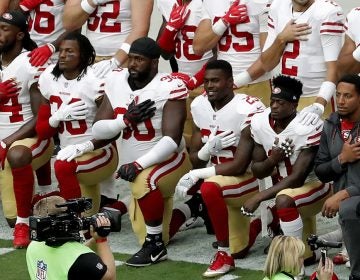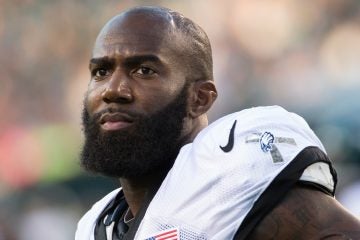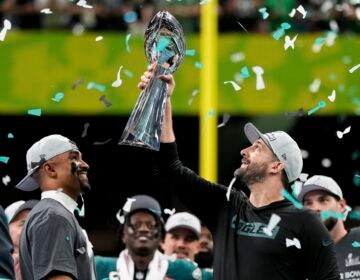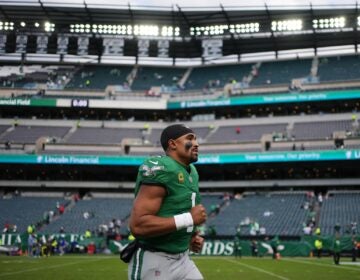Black athletes' protests may have positive influence on mental health, panel suggests
Black athletes can serve as powerful symbols in a media culture that otherwise doesn't have many African-Americans, one panelist said.
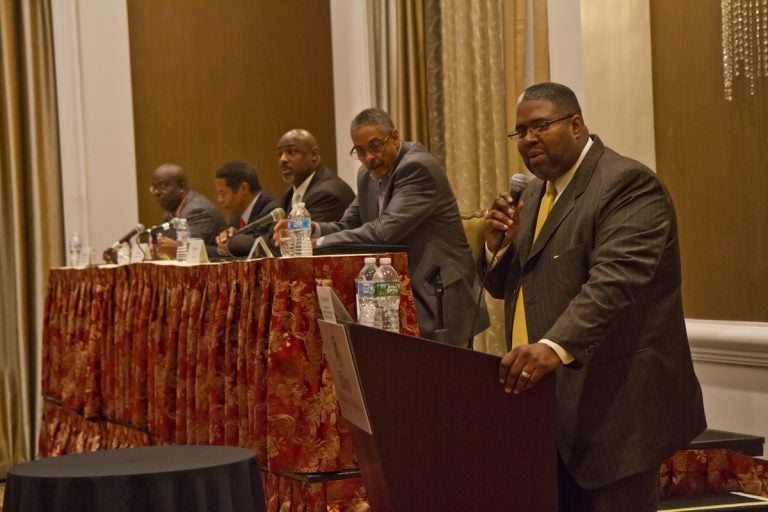
The When Patriotism Meets Activism Panel featured Dr. Reggie Banks, CEO of Dunbar Associates, Joe Watkins, Republican Political Analyst at CNBC, James Paige, COO Community Council Health Systems, and Chad Dion Lassiter, FOX Contributor and President of Black Men at Penn. (Kimberly Paynter/WHYY)
In an effort to connect the high-profile protests by professional athletes to issues black men in Philadelphia face on a daily basis, mental health care providers and activists held a town hall meeting Thursday.
The group discussed whether NFL players taking a knee has an effect on mental health.
As part of a panel, Reggie Banks, CEO of Dunbar Associates, said black athletes serve as powerful symbols in a media culture that otherwise doesn’t have many African-Americans.
“We don’t have ‘Soul Train,’ we don’t have Bill Cosby. You’re talking about a small percentage of people that have a platform in America that represents the entire black race,” Banks said. “The black race is saying, ‘Wait a minute. We have a problem here.’ ”
The event was held few hundred yards away from the annual Philadelphia Sports Hall of Fame induction ceremony.
“I was trying to get some of the Eagles cheerleaders I saw in the bathroom to stop by and have this conversation with us,” said Dr. Marquita Williams, who was the evening’s moderator.
“But they’re not coming,” she said with a smile.
Joe Watkins, a Republican analyst and MSNBC contributor, emphasized the personal sacrifice of players who bring civil rights issues to the field or court and demonstrate during the national anthem.
“NFL players have the chance to make their owners a lot of money and to entertain us with what they do on the field,” said Watkins. “But it’s a wonderful thing when players can say, ‘You know what? What’s even more important than my ability to play football is my chance to make the society in which we live a better place by making a statement.’ ”
Athletes-turned-activists Kyrie Irving, LeBron James, and others are trying to remind Americans of the issues faced by black men away from the spotlight, said Chad Dion Lassiter, president of the group Black Men at Penn.
The kneeling protest started by former NFL player Colin Kaepernick is both a sign of patriotism and activism, he said.
“We want the owners, general managers, and coaches to have a conversation about the black and brown bodies that are dying in the streets with impunity,” said Lassiter.
WHYY is your source for fact-based, in-depth journalism and information. As a nonprofit organization, we rely on financial support from readers like you. Please give today.


